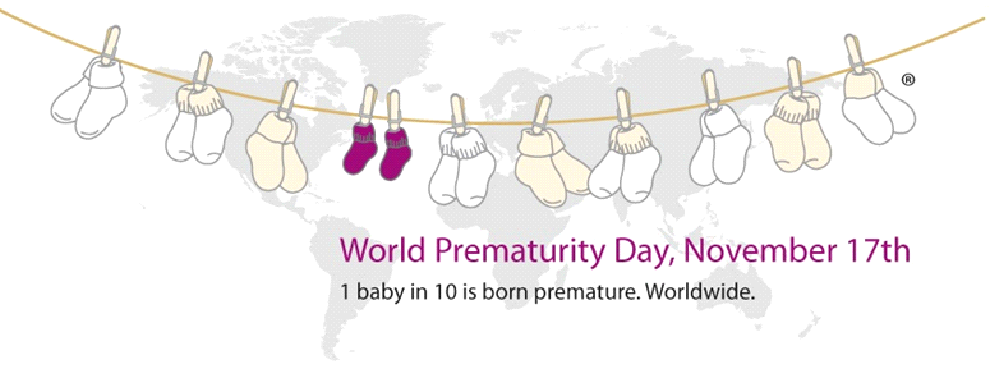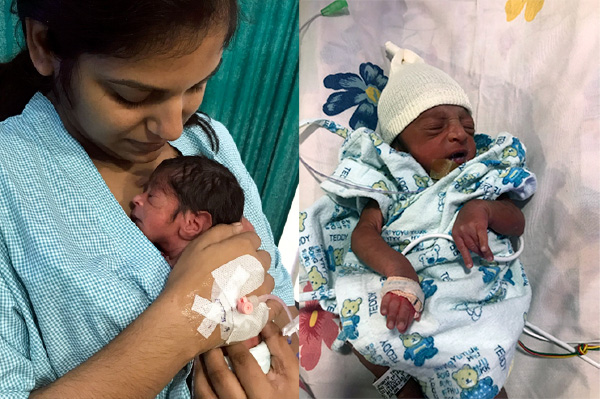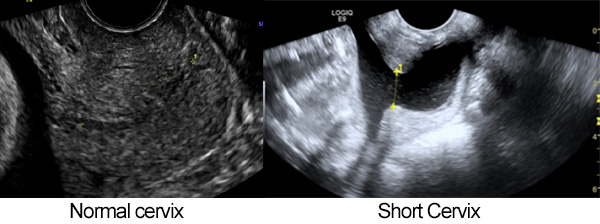World Prematurity Day

Magnitude of problem
Around the world, 15 million babies are born prematurely (Less than 37 completed weeks) every year and one million of these will not survive due to complications of preterm birth.
Worldwide 1 in 10 babies are born premature. Sadly, prematurity is the leading cause of death in children under five.
World prematurity day is a global movement to raise awareness about premature birth and the hurdles babies and parents face every day to see their little one survive the day. Many survivors face a lifetime of disability, including learning disabilities and visual and hearing problems.
While World Prematurity Day is an opportunity to call attention to the heavy burden of deathand disability and the pain and suffering that preterm birth causes, it is also a chance to talk about Solutions.

The 10 countries with the greatest number of preterm births1:
- India: 3 519 100 (1 in 7)
- China: 1 172 300
- Nigeria: 773 600
- Pakistan: 748 100
- Indonesia: 675 700
- The United States of America: 517 400
- Bangladesh: 424 100
- The Philippines: 348 900
- The Democratic Republic of the Congo: 341 400
- Brazil: 279 300
In almost all countries with reliable data, preterm birth rates are increasing.Inequalities in survival rates around the world are stark. In low-income settings, half of the babies born at or below 32 weeks (2 months early) die due to a lack of feasible, cost-effective care, such as warmth, breastfeeding support, and basic care for infections and breathing difficulties. In high-income group, almost all of these babies survive.
Addressing preterm birth is now an urgent priority for reaching Millennium Development Goal. Participation from government agencies, NGO’s and private sector is required equally for research, policy making and execution of programs to reduce the toll of preterm birth in high-burden countries like India.
Why does preterm birth happen?
Common causes of preterm birth include multiple pregnancies, infections and chronic conditions such as diabetes and high blood pressure; however, often no cause is identified. There could also be a genetic influence. Better understanding of the causes and mechanisms will advance the development of solutions to prevent preterm birth.
Solution: begins with healthy mother and good antenatal care
- Counselling on healthy diet, optimal nutrition, personal hygiene and substance abuse
- Contact with health care professional
- Provision of antenatal steroids
- Essential care during child birth and postnatal period to mother and child
- Kangaroo mother care- exclusive breast feeding and skin to skin contact
- Antibiotics to treat neonatal infections


